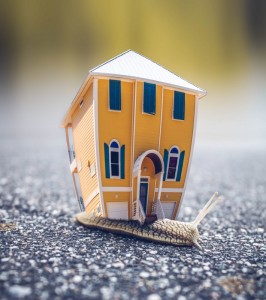It seems like everywhere you look there are people telling you to declutter, how to be tidy and organise your home. But what if you can’t see the wood or the trees for the clutter and are being made miserable by the mess that engulfs you. What do you really need to know about why people hoard and how to help?
What is Hoarding?
Last year the World Health Organisation (WHO) classified hoarding as a medical disorder. They defined it as an “accumulation of possessions due to excessive acquisition of or difficulty discarding possessions, regardless of their actual value”. It could be that as many as 5% of the population in the UK may struggle with hoarding.
Hoarding may be part of a pre-existing mental health issue such as Depression, Obsessive Compulsive Disorder (OCD), or Schizophrenia. Hoarding can also be an issue in its own right. Either way, hoarding can create significant problems for those struggling with it, and the people close to them.
Why People Hoard and How to Help
 People will vary in the way and the extent to which they hoard. And they will hoard for many different reasons. The key to working with this challenging condition is understanding the reason why people hoard.
People will vary in the way and the extent to which they hoard. And they will hoard for many different reasons. The key to working with this challenging condition is understanding the reason why people hoard.
If we view hoarding as a symptom then we know that its job is to point us towards what is asking for help within that person. Unless that deeper message is addressed, the hoarding behaviour will persist. Even if we air-lifted a hoarder to a new and clutter-free home, if they still struggle with the same deeper issues, the hoarding behaviour will continue. It will only be a matter of time before the new home resembled the old one. And any distress would be left unresolved.
What is the Difference Between Hoarding and Collecting?
Hoarding tends to manifest as having excessive amounts of a wide range of things, often of little value – sentimental or monetary. The way in which these items are kept tends to be cluttered and chaotic.
 When people collect it tends to be more specific in terms of what they collect. Their activity is focused and specialised. A careful track is often kept of the items in the collection, often catalogued. The items are usually well cared for and easy to view or access for the collector.
When people collect it tends to be more specific in terms of what they collect. Their activity is focused and specialised. A careful track is often kept of the items in the collection, often catalogued. The items are usually well cared for and easy to view or access for the collector.
Why Is Hoarding a Problem?
Many of us will have kept things that “might come in handy”. That rather random drawer in the kitchen, or “useful” box in the garage or shed. As with most things in life, it is a question of extent. Keeping a few bits and pieces that you don’t ultimately need shouldn’t cause problems. Holding on to things becomes a problem when it is excessive.
Hoarding can lead to practical issues such as being unable to function effectively with life on an everyday level. Getting behind with bills, household admin and tasks for example. Creating a backlog and then the problems arising from that.
There can also be issues are safety from unhygienic conditions if it is difficult to clean, or to keep track of food items adequately. Heaps of clutter may also create trip and fire hazards, making accidents more likely or more serious.
There can also be significant emotional distress caused by living in this way. It can create huge stress as life literally piles up around them. The problems caused by the hoarding add to the underlying issues that gave rise to the hoarding behaviour. Hoarding may be a response to something, and it needs to be addressed so that they can find a more comfortable way to live, on every level.
Reasons Why People Hoard
The reasons why people hoard are, I believe, the key to helping and supporting someone in this difficult place. How and why each person hoards will be different, and the list of reasons is endless. There may also be one or more of these factors in evidence. But this list of some of the reasons why people hoard may give you some useful insights.
- Hoarding as a Response to Trauma – this could be from a difficult or traumatic childhood, or from a specific event. This could include a close bereavement and many other kinds of shocks or losses.
- Hoarding When There is Anxiety & Depression – these can contribute towards the development of hoarding behaviours. They can also be exacerbated by the stress of the consequences of the hoarding or in the efforts of trying to work with it.
- Hoarding as a Response to Not Having Enough – growing up in poverty or through a war can create a sense of needing to make sure you have a supply of what you need. Over the years I have listened to my parents talk about what it was like to be children growing up during World War II. Bombing raids and taking refuge in bomb shelters, evacuation to get away from the cities and docks, a restricted and meagre diet, a mindset of making do and mend. Food rationing only ended in 1954 in the UK. Many of us now are lucky enough to live with a degree of security, choice and comfort unimaginable to all those in the UK and beyond who lived through WWII or any major conflict. For some, this or other kinds of trauma and poverty can leave its mark, including a tendency to hoard.
- Hoarding Due to a Lack of Self-Confidence – there are many reasons why people can struggle with self-confidence. If their low self-belief undermines their ability to make decisions it can be hard for them to trust their judgement. What is alright to keep and what can they give away, etc.? Will they make the right decision? If they don’t decide then they may feel safer as they can’t make the wrong decision. If they lack confidence in their ability to cope with life, they may hope that keeping everything might help them feel safer.
- Hoarding as a Result of Procrastination –
 this has similarities to having low self-confidence, and low self-esteem can be a major factor in procrastination. It is a huge area with many interesting elements, and worthy of a blog in its own right. It is important to factor it in here as it creates a backlog in itself. Procrastination would contribute to the complexity of working with someone who is hoarding and would need to be worked with alongside other issues.
this has similarities to having low self-confidence, and low self-esteem can be a major factor in procrastination. It is a huge area with many interesting elements, and worthy of a blog in its own right. It is important to factor it in here as it creates a backlog in itself. Procrastination would contribute to the complexity of working with someone who is hoarding and would need to be worked with alongside other issues. - Hoarding From Learned Behaviour – as we grow up we learn how to deal with life from our parents. We often recreate the “parental model” without even realising it. Although it can work the other way and we can do a pendulum swing and recreate the opposite in reaction to the family model. Part of our journey as we develop into the people we really are and can be, is to work out who and what we really are and how we want to live. Rather than the unconscious replication or reaction to the family model, parts of which may fit, whilst others may not. If our parents were hoarders, or simply did not pass on some of the life skills we needed, then we may hoard too.
Why People Hoard and How To Help
Hoarding is now more widely recognised as a condition in its own right, which may help in better support being offered. Whilst some hoarders are at the extreme end of the spectrum, and their struggles depicted on TV, there are many who are struggling with less spectacular but still challenging aspects of this condition. A person’s background, medical history and the extent to which they hoard are important in assessing what kind of help is appropriate.
I believe it is crucial to address the issue underneath the hoarding as nothing will really change until that is worked with. It can be hard as the person who is hoarding may not think there is a problem, or they may feel embarrassed and ashamed. It can be incredibly stressful and isolating for them. We need to offer help with patience and kindness as this may well touch on difficult issues for people. And the items themselves may also trigger difficult memories or feelings.
 They may be genuinely worried that people are going to force them to get rid of things against their will. This may even be enough to stop them seeking help. Practical support maybe invaluable when appropriate, especially if it is too much for an individual to tackle on their own. This may be family, friends or professionals to help clear the backlog. But the therapeutic support needs to be in place to address the issues, supporting that person to reach a place where they can then begin to address the practical element. To feel able to let go of hoarding.
They may be genuinely worried that people are going to force them to get rid of things against their will. This may even be enough to stop them seeking help. Practical support maybe invaluable when appropriate, especially if it is too much for an individual to tackle on their own. This may be family, friends or professionals to help clear the backlog. But the therapeutic support needs to be in place to address the issues, supporting that person to reach a place where they can then begin to address the practical element. To feel able to let go of hoarding.
I hope you have found this post on Why People Hoard and How to Help to be of interest. My practice clinics are in West and East Sussex, and also via Skype. If you would like to see if my approach might suit you, please do contact me.

